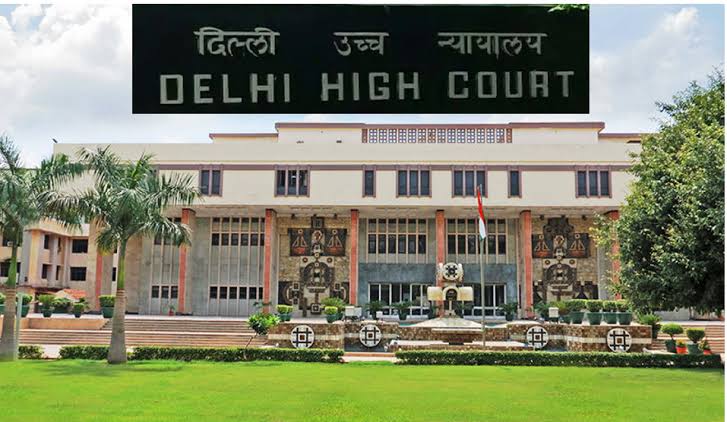


The Delhi High Court is set to examine the issue of the jurisdiction of the High Court to deal with the rectification/cancellation petition filed under the Trade Marks Act, 1999 [The Hershey Company v Dilip Kumar Bacha, Trading as Shree Ganesh Namkeen & Anr + Connected Matters].The issue was referred by a single-judge to a larger bench which will consider whether cancellation petitions under the Trademarks Act can be filed only before a High Court within whose jurisdiction the offices of the Trade Mark Registry which granted the registrations are situated or whether such applications also be filed before the High Courts within whose jurisdiction the dynamic effect of the registration is felt by the petitioner.Following questions have been referred to the larger bench by a single-judge of the High Court:
Whether the decision of the ld. Full Bench in Girdhari Lal Gupta v K Gian Chand Jain rendered under the Designs Act, 1911, would be applicable in the context of the Trade Marks Act, 1999 as amended by the Tribunal Reforms Act, 2021, for determining jurisdiction of a High Court under Section 57 of the Trade Marks Act?
Whether the jurisdiction of the High Court under Section 57 of the Trade Marks Act, 1999 would be determined on the basis of the Appropriate office of the Trade Mark Registry, which granted the impugned trade mark registration?
Whether the expression ‘the High Court’ can be differently construed in Sections 47, 57 and 91 of the Trade Marks Act?
In a judgement pronounced on February 9, Justice Prathiba M Singh requested the Acting Chief Justice Manmohan to constitute a larger bench to decide these questions after two single-judges differed on the issue.Justice Singh disagreed with the conclusions of Justice C Hari Shankar in the case of Dr. Reddys Laboratories Ltd v Fast Cure Pharma.Dr. Reddys judgement had held that the rectification petitions would be maintainable not only before the High Courts within whose jurisdiction the offices of the Trade Mark Registry which granted the impugned registrations are situated, but also before the High Courts within whose jurisdiction the dynamic effect of the impugned registration is felt by the petitioner.Justice Singh said that she is unable to subscribe to this view because Dr. Reddys followed the position in Girdhari Lal Gupta v K Gian Chand Jain but Girdhari Lal Gupta is inapplicable in the context of Trademarks Act since it pertains to the interpretation of the Designs Act, 1911.“The Designs Act, 1911, as considered, did not encompass provisions related to the establishment or abolition of Appellate Tribunals such as the IPAB, a feature central to the 1999 Act, particularly after the TRA. Further, the scheme of the 1999 Act, is different from the scheme envisaged under the Patents Act, 1970, especially due to the nature of rights and remedies provided for,” the Court noted.It further said that the approach recommended in Dr. Reddys which allows different High Courts to exercise original jurisdiction over rectification petitions, raises questions regarding the interpretation and application of the Trade Marks 1999 Act.“One of the implications of such an approach as suggested is that different High Courts would be conferred with original jurisdiction to entertain original rectification petitions, for which there is no clear indication from the scheme of the 1999 Act itself. Under the Patents Act, 1970, if a counter claim is filed then the patent dispute automatically moves to the concerned High Court. In such a situation, all High Courts where patent disputes are received or filed, would in effect be exercising original jurisdiction under the Patents Act, 1970. However, insofar as cancellation petitions are concerned, such an intent is not borne out from the Trade Marks Act 1999 Act or the Tribunal Reforms Act 2021 (TRA)– though the spread of trade mark disputes across the country to all High Courts could be a positive move. The basis however needs to exist in the legislation.”The Court passed the order while dealing with a batch of rectification petitions filed by companies like Hershey, Kohinoor Seeds and Liberty Footwear.Advocates Urfee Roomi, Apoorva Bharati, Anuja Chaudhury, Ritesh Kumar, Anubhav Chhabra and Radhika Arora appeared for The Hershey Company.Kohinoor Seed Fields India Pvt Ltd was represented through Adarsh Ramanujan, Sulekha Agarwal, Soumya Singh, Saurav Agarwal, Shantanu Agarwal and Skanda Shekhar.Senior Advocate Rajshekhar Rao along with advocates Kapil Wadhwa, RV Yogesh, Sindoora VNL, Vishakha Gupta, Twinkle Rathi, KV Pawan Kumar, Tejasvini Puri, Vasanthi Hariharan appeared for Veda Seeds Sciences.Liberty Industrial Court was represented through Advocate Gautam Wadhwa.Central Government Standing Counsel (CGSC) Harish Vaidyanathan Shankar along with advocates Srish Kumar Mishra, Sagar Mehlawat and Alexander Mathai Paikaday appeared for Union of India.
TAGS: Delhi High Court Jurisdiction Trade Marks Act Larger Bench Rectification Petition Hershey Company Dr. Reddys Laboratories Ltd